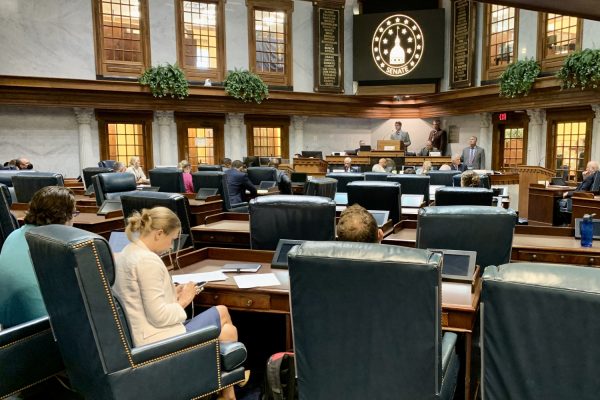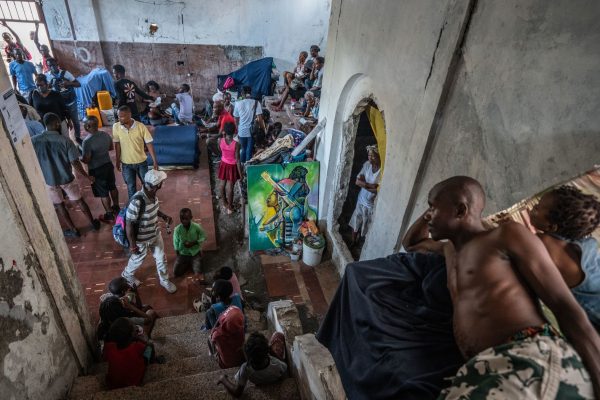Nikole Hannah-Jones

March 25, 2022
On March 15, Nikole Hannah-Jones made an appearance at the Debartolo Performing Arts Center on the Notre Dame campus, where she was interviewed by English and Africana studies professor Mark Sanders of the university.
Nikole Hannah-Jones is a 1998 graduate of Notre Dame who has become very successful in the world of journalism. She is an investigative reporter for the New York Times, the author and founder of the 1619 project, as well as the founder of the Ida B. Wells Society for Investigative Reporting. She has won many awards including two Pulitzer Prizes as well as the MacArthur Grant.
The Ida B. Wells society is designed for journalists, specifically people of color. Young aspiring journalists can sign up for this program and receive free courses on investigative journalism, offering knowledge that not even the most prestigious universities can.
As a black woman, Jones’ main focuses regard the lasting impacts that slavery had on the United States’ black population, as well as other racial and discriminatory issues. The 1619 Project has been attributed to the controversial critical race theory that has gripped the nation in recent months.
After Jones published her compilation of essays titled The 1619 Project: A New Origin Story last year, it created a controversial eruption in the United States, gaining opponents and supporters. It is a collection of stories and poems that exemplifies the oppression and lasting effects that slavery had on African Americans in today’s’ society. Her work created so much tension that it was mentioned in Donald Trump’s impeachment trial several times.
The most fascinating part of Hannah-Jones’ presentation was her criticism of private universities, particularly Notre Dame. This interview was her first time back at her alma mater in twenty years and there was a reason for this.
Jones discussed the fact that she was educated enough to be admitted into the University, but after attending, she was not able to build the same relationships that other people on the campus had been able to. This caused her to stop doing her work, and she ended up almost failing out of the school. When she went to talk to her guidance counselor, she suggested that she should drop out so that she would be able to transfer to another university. However, what Hannah-Jones noticed was that the counselor did not ask her what had happened, or how she could be helped.
This is why it is so important to have resources – especially for minorities – to help them succeed through school rather than let them give up. Luckily, Hannah-Jones was able to fight through. With the motivation of her family and a dream for success, she knew she had to do well, and she had to do well in Notre Dame.
Even though she succeeded, she told several stories about the hardships at Notre Dame. At one point, a white football player had called her the n-word, and received no punishment. In another instance, a student asked what they should do while being a Notre Dame Student and she said, “transfer to Howard,” a historically black college. Jones highlighted how many private universities are not designed for minorities to flourish and how they are bad at sustaining them.












